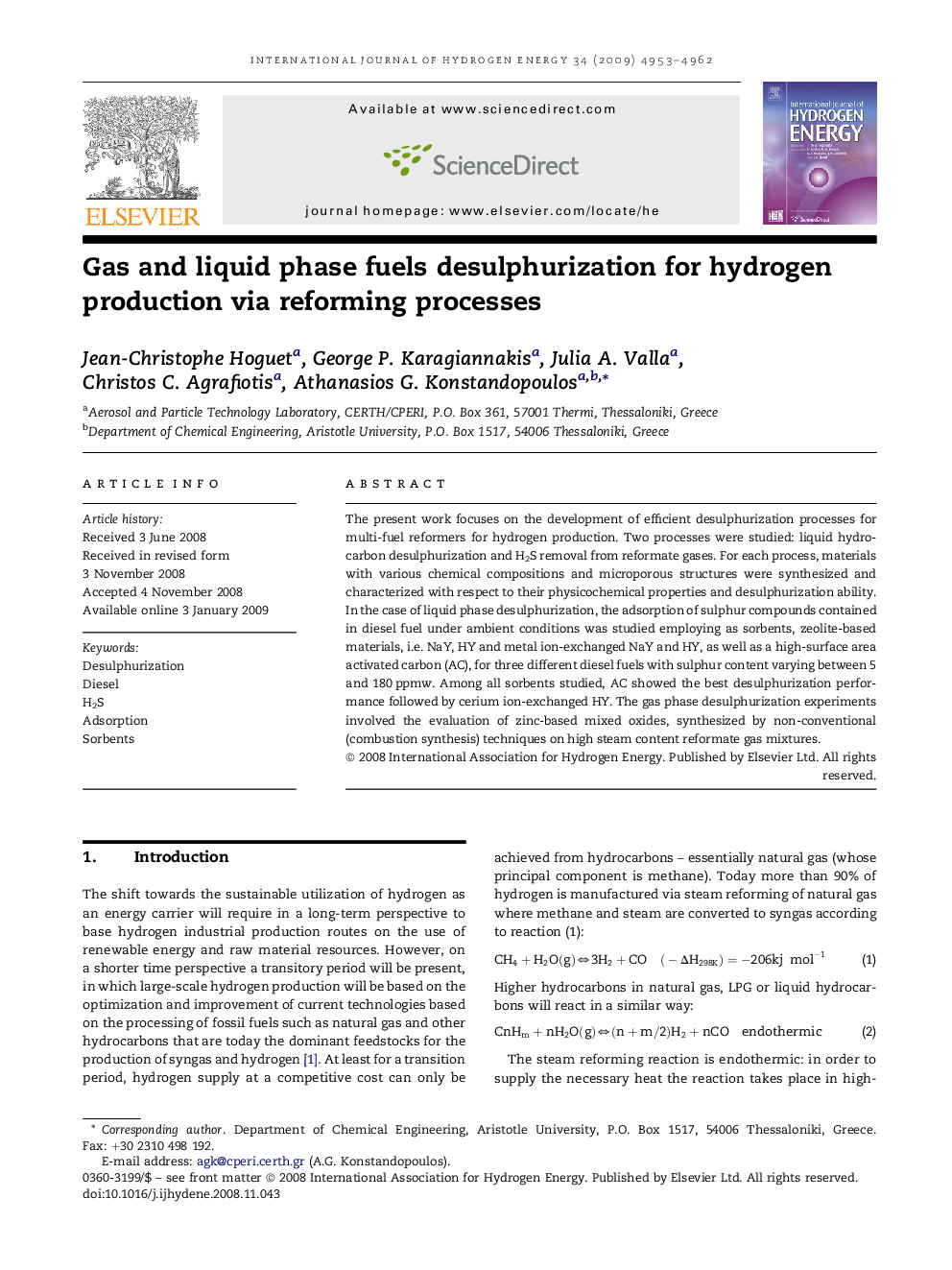| Article ID | Journal | Published Year | Pages | File Type |
|---|---|---|---|---|
| 1277883 | International Journal of Hydrogen Energy | 2009 | 10 Pages |
The present work focuses on the development of efficient desulphurization processes for multi-fuel reformers for hydrogen production. Two processes were studied: liquid hydrocarbon desulphurization and H2S removal from reformate gases. For each process, materials with various chemical compositions and microporous structures were synthesized and characterized with respect to their physicochemical properties and desulphurization ability. In the case of liquid phase desulphurization, the adsorption of sulphur compounds contained in diesel fuel under ambient conditions was studied employing as sorbents, zeolite-based materials, i.e. NaY, HY and metal ion-exchanged NaY and HY, as well as a high-surface area activated carbon (AC), for three different diesel fuels with sulphur content varying between 5 and 180 ppmw. Among all sorbents studied, AC showed the best desulphurization performance followed by cerium ion-exchanged HY. The gas phase desulphurization experiments involved the evaluation of zinc-based mixed oxides, synthesized by non-conventional (combustion synthesis) techniques on high steam content reformate gas mixtures.
